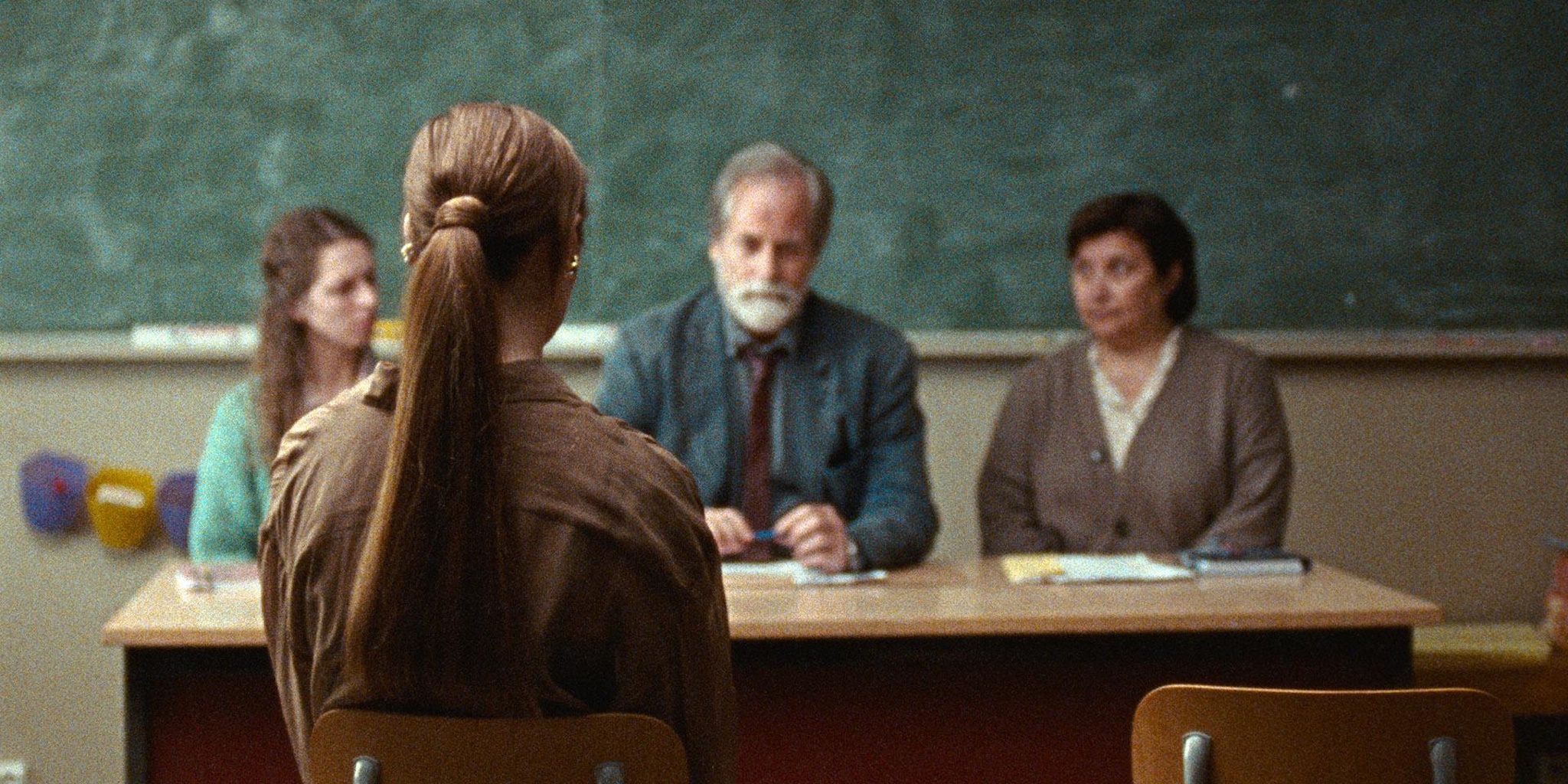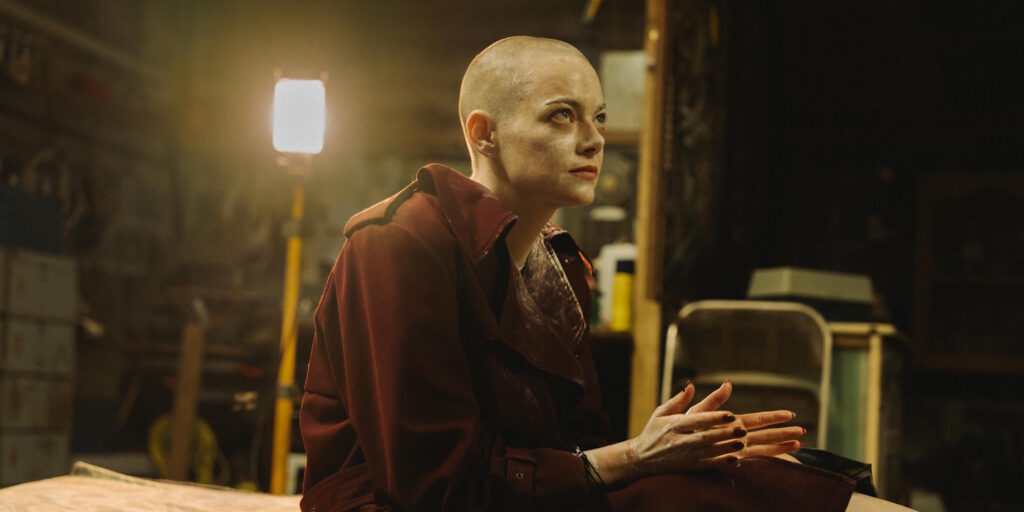Although the name Halfdan Ullmann Tøndel might not sound familiar, his grandparents’ will surely ring a bell: Liv Ullmann and Ingmar Bergman. Forget about the nepo-baby debate. The conversation has now evolved to nepo grandbabies. Establishing Tøndel as the Norwegian equivalent of a Drew Barrymore, Billie Lourde, or Dakota Johnson wouldn’t be necessary if not for the major role that family plays in his debut film, Armand. Tøndel’s psychological drama deals directly with how our darkest urges can be passed down from generation to generation (admittedly, an idea previously explored by another Scandinavian domestic thriller, The Girl with the Dragon Tattoo). It ultimately drifts a bit too far from its intriguing setup to be a truly satisfying use of its concept, but that’s not to say it lacks promise.
The viewer is thrown right in: Elizabeth (Renate Reinsve) speeds toward her son’s school, driving with one hand while trying to get answers out of the phone in the other. There’s been … an incident. Involving Armand, her 6-year-old boy. That’s all she knows. For a good 20 minutes, that’s all the audience knows as well. The boy is sequestered with school administrators prior to Elizabeth’s arrival, whereupon she is escorted into a classroom to wait with her son’s teacher, Sunna (Thea Lambrechts Vaulen), for two additional parties: Sarah (Ellen Dorrit Peterson) and Anders (Endre Hellestveit), parents of classmate Jon. It’s not serious, Sunna insists, which does little to put Elizabeth at ease once Sarah and Anders come roaring in. Apparently, everyone but Elizabeth is aware of the situation.
The reason they’ve all been summoned to the school on a rainy day at the end of the spring semester, as is agonizingly revealed in tiny scraps of delicate wording, is — unsurprisingly, given Sarah and Anders’ attitude — Armand. More specifically, Armand’s mistreatment of Jon. What transpired wasn’t a run-of-the-mill playground scuffle, nor can it be filed under the age-old “boys will be boys” dismissal. Jon was found crying in the bathroom with a scratch on his face and his pants off. The suspicion is sexual deviance, and Armand is allegedly to blame. What begins as a meeting between parents and teacher soon grows too heated, prompting the school administrators to enter the conversation. When this eventually escalates as well, it becomes a conversation behind closed doors — parents on one side, teachers on the other.
On paper, it sounds like it’d be a dialogue-heavy affair. It’s really not, though. Armand goes long stretches without a word, filling space where back-and-forth would go with emotionally charged looks and tense moments of silence (and, on more than one occasion, interpretive dance breaks). Like a tide, the plot flows forward, doling out a crumb of new information that completely changes everything, then ebbs backward to allow some time for us and the characters to process. Armand roars ahead and rushes back like this for the duration, but by rolling around in the sand like this, the end result feels more exhausting than if it had moved like a storm surge. One sympathizes with Elizabeth, alone with Sunna at the start of the film: Let’s get into it already.
Working from a script he wrote himself, Tøndel’s potential as a writer-director heavily skews toward the latter — at least judging by this initial outing. With a surname like “Bergman” in the genealogy, it takes a certain level of confidence to enter the family business without pulling a Nicolas Cage and distancing yourself from one’s famous last name. Comparisons to his grandpa are inevitable, and yet, even with the aforementioned surrealist flourishes, there’s scant evidence he wants to avoid such associations. Armand would have been better served if its script leaned more into its chamber-play roots instead of attempting to buck them — Mass (2021) being a recent example of how it’s done. It wasn’t to be, but for the most part, Tøndel appears skilled enough behind the camera to carry on the filmmaking legacy afforded to him.
Armand opens in select theaters on Friday, Feb. 14.




